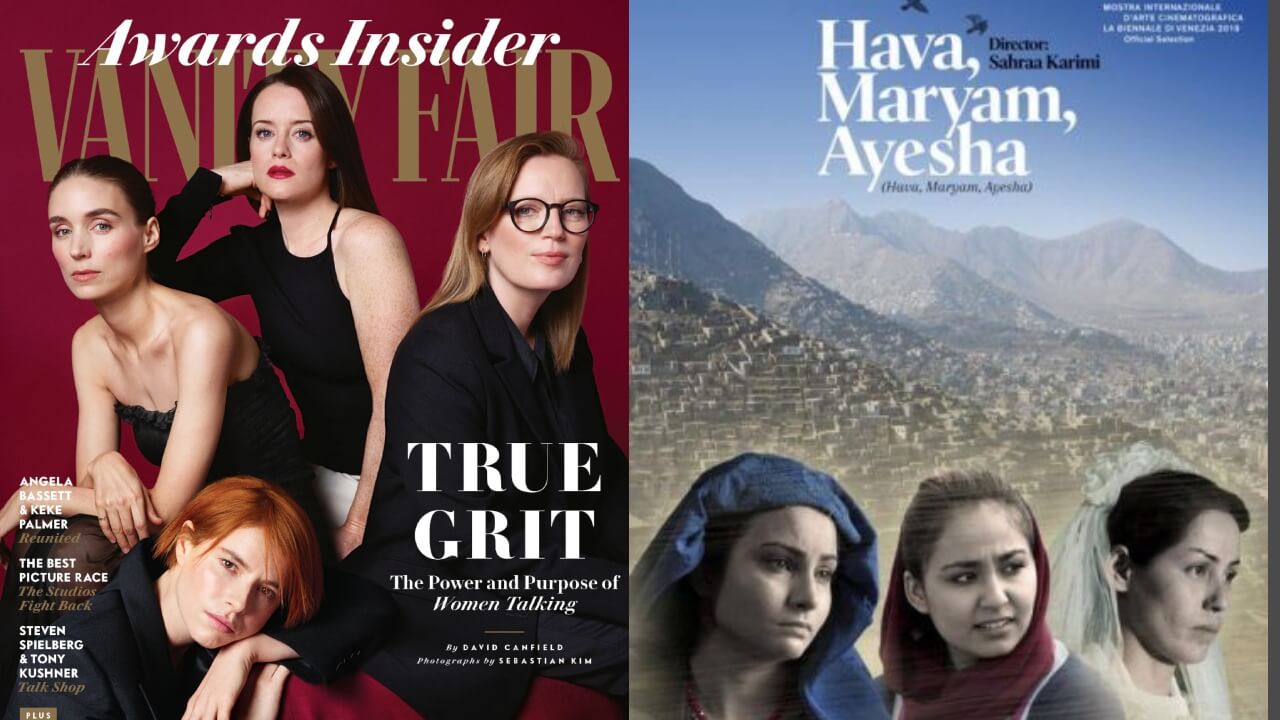For cinema to actually empower any part of neighborhood or gender, the root-cause of the rot and disempowerment have to be addressed pointblank. Two modern movies, one American the opposite from Afghanistan, chronicling the destiny of kindred ladies in bigoted patriarchal communities, needs to be on each film buff’s must-list.
Sarah Polley’s Women Talking is simply what it says it’s. There are ladies of all ages, speaking. What they are saying modifications our perspective on oppressive society. In reality, so damning and dreadful are the issues that these ladies from an intolerably oppressive backwater neighborhood in modern America (2010) communicate, that we are sometimes made to really feel like a responsible participant somewhat than a indifferent spectator.
They behave and undertaking a muted anguish that belongs to an period both within the distant previous or in a bleak future, one thing like Margaret Atwood’s The Handmaid’s Tale however rather a lot much less pale, much more outlined and certified by the colours of revolt.
Women Talking is a pleasure to behold for a lot of causes, not the least of these being the gallery of attractive actresses caught by cinematographer Luc Montpellier within the sepia colours of a fading mild. The ladies are nearly Ingmar Bergmanesque of their burnished magnificence. The actresses are so stunning of their poignant situation. I immediately knew what ‘tragic grandeur’ meant. Each one-sexy—Rooney Mara, Claire Foy, Jessie Buckley, Judith Ivey, Sheila McCarthy, Michelle McLeod and Frances McDormand—are captured within the captive positions. They are all victims and but they don’t seem to be going to stay so for lengthy. I felt somewhat extra protecting towards Jesse Buckley; in contrast to the opposite ladies she wore her wounds on her face.
Women Talking is about rising from the ashes. It brims over with an unspoken rage of girls of all ages from 70 to 9 who’re drugged and raped. We see not one of the brutality (thank God!). But we really feel these ladies’s ache taking pictures up our sensitivities and daring us to not reply.
A raging pounding masterpiece, Talking Women is the closest factor I’ve seen on display screen to poetry on movement. Although the ladies communicate in prose their predicament is rendered in a poetic tone. This not-to-be-missed saga of abuse and violence (with one very light and delicate, nearly emasculated male character) will stick with you for a really very long time. .And in case you are a male it could be some time earlier than you’ll be able to look into the mirror with out flinching.
Sahra Karimi’s Hava, Maryam, Ayesha about three pregnant ladies grappling oppression in Afghanistan was shot clandestinely in its nation.It is a simple unvarnished take a look at life for girls in an oppressive society. There are three sections every dedicated to one in all them. Hava (Arezoo Ariapoor)’s plight is the bleakest. Pregnant and uncared, she toils from early morning until late evening caring for her ailing paralyzed mother-in-law, taunting father-in-law and a husband who asks her to prepare dinner up a feast for his buddies inside hours. Breathless and on the breaking point, Hava’s life makes us cringe in disgrace and shock.
Maryam’s story is the weakest of the three in Hava, Maryam, Ayesha. Perhaps as a result of Maryam is way extra privileged and empowered than Hava. Maryam (Fereshta Afshar) has a high-profile job the place she fights male consideration effectively sufficient. She is pregnant, like the opposite two protagonists of this cheerless drama behind the purdah of perdition. But her fixed anger and recrimination towards her dishonest accomplice over the telephone, to not point out the ostentatious smoking, will get oppressive for the viewers to observe.
The third story a couple of teenage lady Ayesha (Hasiba Ebrahimi) desperately searching for an unlawful abortion earlier than her organized marriage, possesses an unpunctuated vitality. The on a regular basis sights and sounds of Kabul are bottled within the fumes of violence and brutality that we by no means see however really feel in every single place.
Hava Maryam & Ayesha was chosen as Afghanistan’s entry into the Oscars however rejected on a technicality. You may say, ill-luck prejudice and segregation run deep in Talibanized societies.
